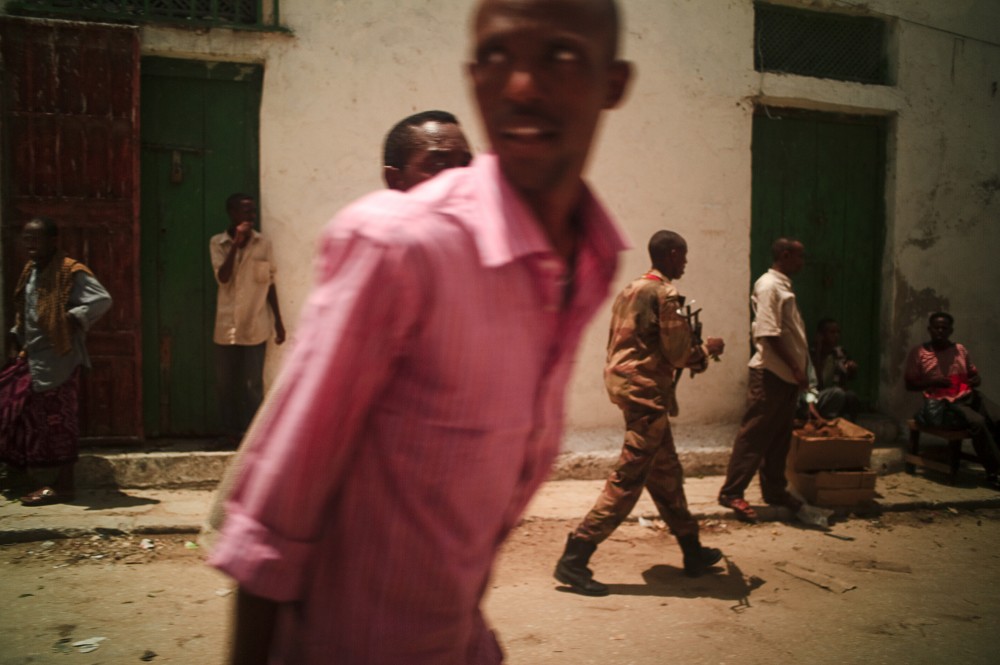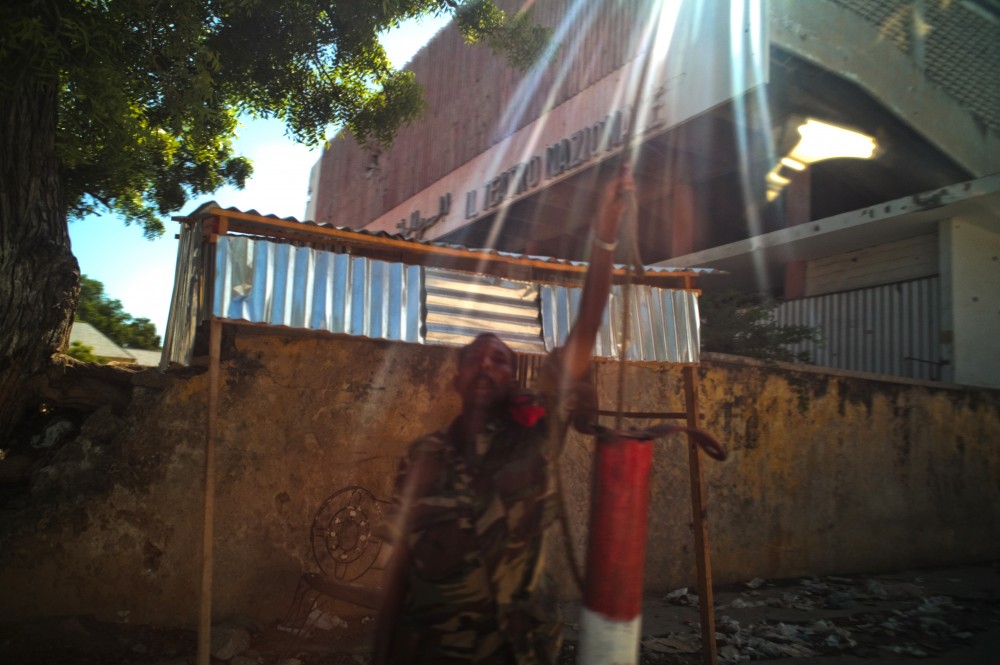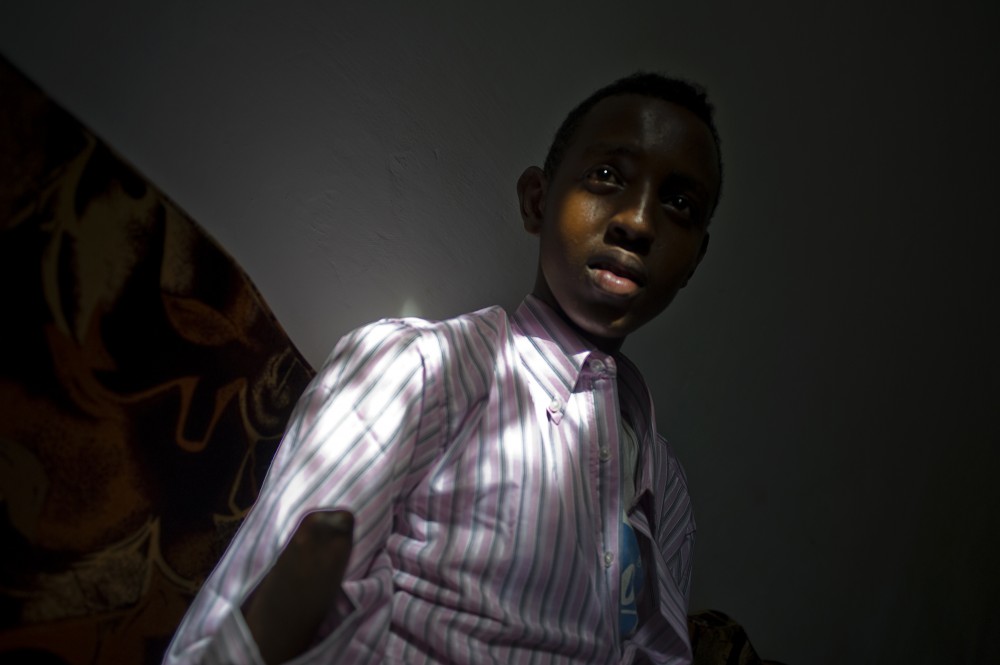Somalia: The Daunted Nation
“the role of humiliation and trauma in the Somali society”
Project by: André Liohn – Photo and video photographer.
"A wounded soul may hurt as much as a wounded body" Sérgio Vieira de Mello 1948-2003 United Nations High Commissioner for Human Rights.
Somali warlords and Islamic insurgents have been powerful enough to drive out foreign troops serving under the United Nations, including Americans, Germans and French, but none of them were strong enough to kill the others and the prolonged conflict in Somalia, especially in and around the capital, Mogadishu, has left in every Somali heart the inner wounds of war -- widespread despair, trauma and depression, disbelieve in the future and in other fellow humans.
Somalia presents the single largest humanitarian challenge in the world. The average age of the Somali people is 17.5 years old. The country however, has lived in the past 21 years, through droughts and famines, wars and conflicts, massive population displacements, appalling human rights violations, state orchestrated terror and recently, piracy and religious extremism. The final translation of this state of nearly total destitution is bad metal and physical health, fear, accumulative traumatic experiences and finally the inability to exercise introspection that could lead to mutual understanding.
Somalia and somalis are struggling to rescue its identity from a ruinous war and the country needs help to do more than just a cosmetic treatment on its mutilated face and moral. Humanitarian workers say that Somalia's ills are to big to ignore but to complex to manage and in various occasions, Somalis are accused of not being open to be helped. The country has been a grave yard for the Western policy towards conflict solution and humanitarian assistance and development. After the UN´s defeat in the early 90s, the United States supported by European nations has spent the 2000s doing everything possible to disable the Islamists in Somalia–even if it meant propping up brutal warlords with no real vision for a Somali state.
Questions about the metal health conditions of the Somali people have not yet been raised, and the few programs for stabilization of the country, have little or no consideration to this issue. The entire country have only one practicing psychiatrist, Dr. Abdiaziz Mohamed Warsame. Dr Abdiaziz points the conflict in Somalia as the main cause of his patients mental problems. Dr. Mohammed Yussuf, the director for the Medina hospital complete saying: “Everything here is bad. We Somalis are all traumatized. You can die any day. We are like ants that are being stepped on, a forgotten people. Darfur is a paradise compared to Mogadishu. But Darfur is new and we are old. The children have always been dying here, and no one sees it anymore. An entire generation has grown up in this war and that several generations will never get it out of their heads. This too explains why there is no end to the suffering.”
The project:
This project is aimed to call the international community´s attention towards the mental health situation in Somalia. I want to present it as it is; a major element in the overall problem. The simple promotion of this element among decision makers treating the Somali case, might help than to take this issue seriously, what might inspire them to create new and adjust old policies and plans for Somalia. I want my pictures and videos to be a contribution in the process of understanding the meanings of the Somali mental and emotional suffering symptoms.
A leading researcher on trauma and humiliation, Dr. Evelin Lindner affirms that “traumatized persons usually loose control over their lives. Violence can become a mean to cope with this loss and an attempt to regain control.”
I believe that the key in situations like the Somali is “human empathy”. But for empathy to be felt towards Somalia, the world needs to know what is happening there. Unfortunately the conflict in Somalia has been for too long victim of international negligence. As other conflicts around the world receive extensive media and political attention, the somali conflict seams to be left in a third plan. My experience working with international outlets in Somalia is that they are only interested in two things: The pirates and any group with any (even if not proved) relation with Al Qaeda. This project has the possibility to show and suggest a new element in this debate.
About my self:
My interest in the victims of military and humanitarian interventions is most probably a result of the feeling of frustration, betrayal, impotence and humiliation I experienced during my childhood in my hometown, Botucatu, Brazil. My family, my friends, myself and the majority of the people I knew were poor. I felt like being descriminated and betrayed by my own country, and I tended to idealize the outside world. And the outside world became the only imaginary solution for my tragedy: either I would have to reach it, by foot if necessary, or the outside world would come and help me.
Project outcome.
The completed project will be comprised of a portfolio of still photographs and video for both print and multi-media pieces.













